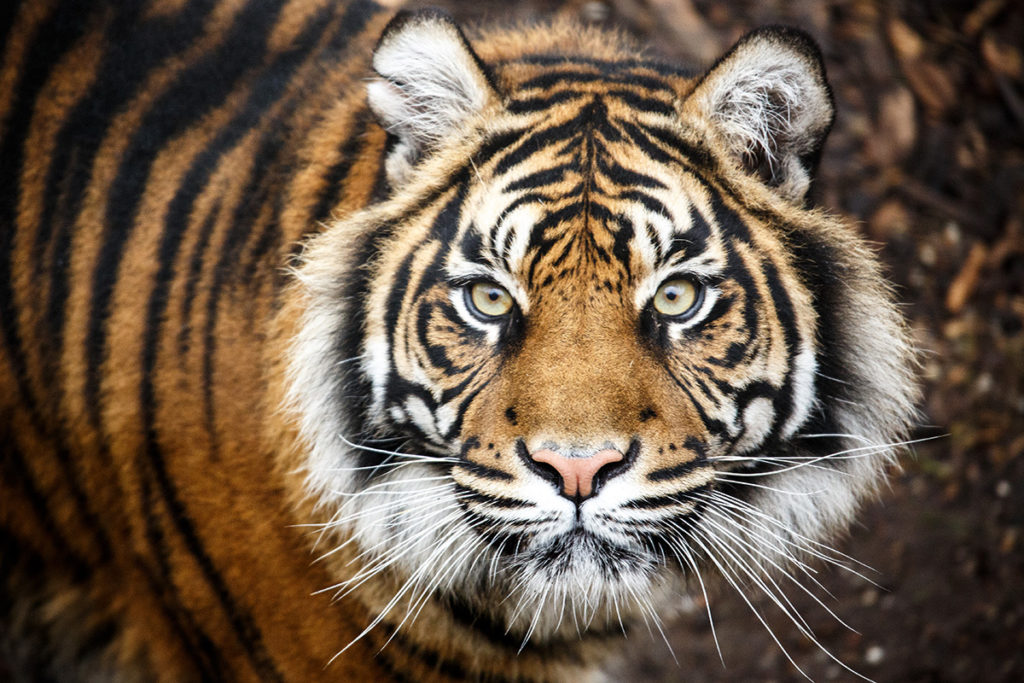
It’s nothing new for electric co-op crews to be observed by curious eyes when doing site work. But for lineworkers at Rural Electric Cooperative in Lindsay, Oklahoma, there’s one account where the looks can feel a bit … predatory.
Among REC’s nearly 12,000 consumer-members is G.W. Exotic Animal Park, the now-infamous 16-acre big cat zoo featured in the popular Netflix documentary, “Tiger King.”
Journeyman lineman Stoney Robbins said nighttime calls at the facility can be particularly creepy, recounting one such visit to check service after an outage.
“We had flashlights and every time you would shine the light around you, all you could see were eyes watching you and the lions jumping on the cage,” said Robbins. “I think that was the fastest I have ever checked voltage, and then we got out of there.”
Tucked away in the vast areas served by co-ops throughout the country are some one-of-a-kind loads: national and state parks, marijuana grow houses, cult headquarters and elephant refuges. For more than 20 years, REC has provided power to the G.W. Zoo, which during its heyday housed more than 200 tigers, lions and other wildlife.
For those who have yet to watch the Netflix documentary series, “Tiger King: Murder, Mayhem and Madness” tells the story of the zoo’s flamboyant owner, Joseph Allen Maldonado-Passage, alias Joe Exotic, and his feud with Carole Baskin, the operator of a big cat sanctuary in Florida. Last year, Exotic, 57, was convicted of trying to hire someone to murder his rival and sentenced to 22 years in prison. He also was convicted on multiple counts of violating federal wildlife laws.
At one point in the documentary, Exotic says: “People don’t come to see the tigers; they come to see me.” And it’s clear that his big personality made him one of the zoo’s main attractions.
But what’s he like when the cameras aren’t rolling?
“I can assure you from watching the documentary, he’s 100% the same,” said Megan Lawrence, the co-op’s manager of member services and marketing. “His language, how he portrays himself … all of those are the same. He’s a colorful individual and he definitely lives to be who he wants to be.”
Lawrence said she’s never met him herself and that Exotic hadn’t attended an annual meeting. But Lindsay, Oklahoma, is a small town with few secrets.
“We’re all neighbors and we know all of our members. Joe would be no different in that sense,” she said.
Line crews report friendly encounters with Exotic and say that zoo crews took care to move the animals away from work sites. The zoo has reportedly been closed during the COVID-19 pandemic.
“I didn’t always appreciate his language, but he was always nice to me and, if he saw me, he was always friendly and would speak to me,” said Robbins.
In the documentary, one zoo employee is badly injured by a tiger, but, fortunately, REC reports no injuries or close calls at the zoo.
There is one unusual job hazard though: tiger urine. “I never had a problem going there, but you do have to be careful around the large cats as they can [spray] on you, even from a distance,” said David Crull, systems superintendent.
No extra precautions with equipment were necessary, but line crews were especially mindful of their surroundings.
“It was a little bit fearful and exciting at times,” said Chuck Martin, a construction supervisor. “It didn’t matter where we were working, you always had eyes on you watching everything you were doing. And they would follow you as you moved throughout the zoo.”
Victoria A. Rocha is a staff writer at NRECA.